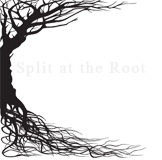
“Where are you from?” is a simple question. The answer, however, can become rather complex.
When I am asked where I’m from, people expect me to say a Caribbean island, and look at me a bit more closely when I say Guatemala because I don’t look like a representative of the Mayan population. Can I claim being Guatemalan, though? Growing up, my friends were by and large Germans and I spoke primarily German at home. I was the only Black kid in school and the literature we read in school or I read at home, there no heroes were featured that had my complexion. Language-wise, I speak several; my German being more sophisticated than my Spanish, and the many years in the US have made English my preferred language of expression; certainly my language of survival. So, while I have 100% Guatemalan ancestry, I only lived in that country for the first 15 years of my life and my visits since have been few and far between. Somehow I don’t believe I’ve earned the right to claim “Guatemalaness.”
My high school education, while obtained in Jamaica, was British. Those four years molded a perception of the world that to this day remains oddly British although my stays in England, Scotland, and Ireland have only been brief.
If “were are you from” means where I feel most deeply connected to, I’d have to say Germany. What was carved into my soul and psyche as a child has remained indelible through the decades. The bulk of my friends live there and time has not in any way eroded the bonds we forged half a century ago. But even the best of my friends would consider me a foreigner in their country.
For years, before opting for American citizenship, I carried a Green Card that allowed me to live unencumbered in the US as a resident alien. My husband was American so is my child; I was the alien. Now I carry a US passport, live in Arizona, and more often than not, feel like an alien in this trigger-happy State.
As visiting professor at SUNY Albany, I asked students to write about themselves and how they identified. It was an appropriate question for a graduation requirement course on cultural diversity. I shared with them my own experience: Black by Race, Guatemalan by birth, European by culture, American by Nationality… As the essays poured in I realized that so many of them were more multi-cultured and international than I was. One beautiful Black student, for instance, was born in Russia of Ghanaian and Nigerian parents who had received scholarships to study in Moscow. They had met and married there. For the first 6 years of life, he only spoke Russian as neither parent understood the other’s African language. Once their undergraduate degree was completed they settled in England to pursue a PhD, so English came into his sphere; and once the doctorate was completed the family returned to Africa (where he was referred to as “the Brit” because of his accent.) He was married an Asian-American girl. Look at the backgrounds of this kid: a- those of his parents, b- those of his early life and education, c- the environment in which he lived in the US, d- his wife’s home. Where did his connection lie? Who was this citizen of the world, who had called so many places home?
International migration as a result of political repression, economic globalization, foreign access to employment has created millions of people who have become cultural tumbleweeds, and like Ulysses are formed by all they’ve seen and everywhere they’ve been. Those of us who have moved from place to place and are a mosaic of cultures… do we have a home? What do we call home? Our world is so different to that of our grandparents who had a clear sense of home and even if having migrated, immediately set out to establish roots and become rooted in their new environment.
When I met Fred in 1968, we were a novelty. I look at my son, whose mixed ancestry - Irish/French on his dad’s, Carib/British on his mom’s side. Although his marriage did not last, his wife had a Korean mother and Polish father. The culture in the young couple’s home was a mix that in no way replicated French, Irish, Carib, English, Polish or Korean culture. In time, the more places we all “come from” or we call “home,” will have us embrace a changing, new world and will help us embrace the many foreigners and see the beauty and richness that is the prism of their contributions.
AUG
